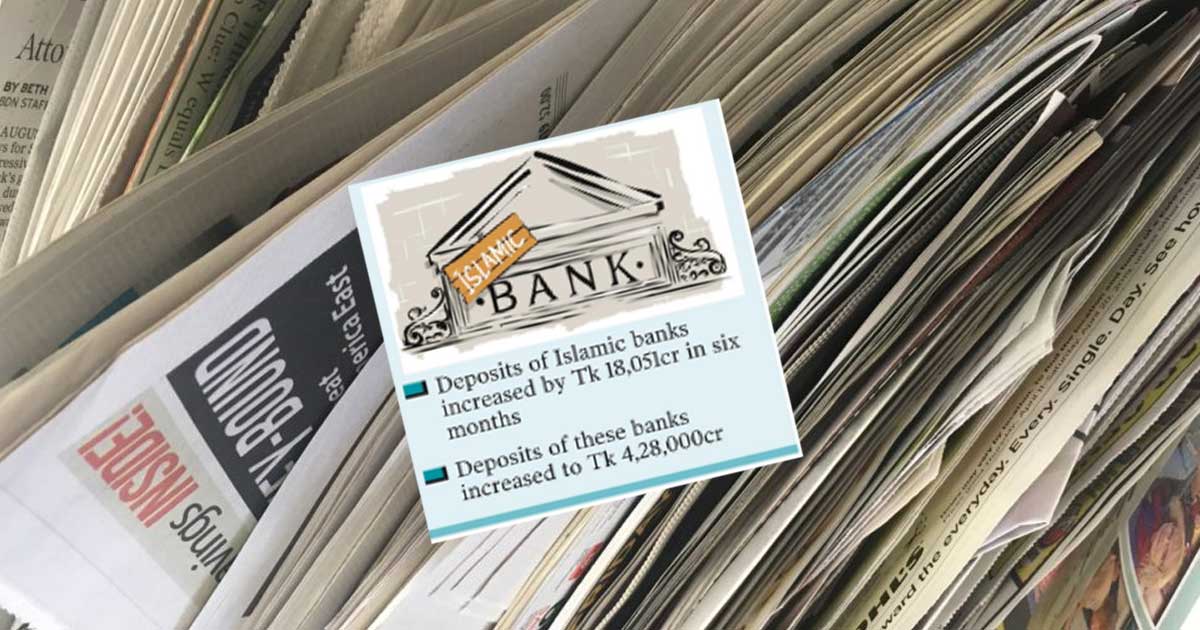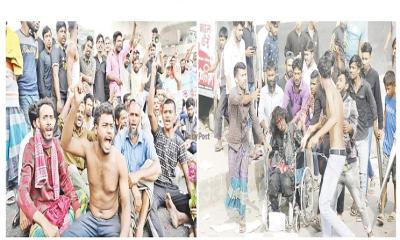- Deposits of Islamic banks increased by Tk 18,051cr in six months
- Deposits of these banks increased to Tk 4,28,000cr
The banking system is in the midst of a mountain of bad loans and various equations over interest rates. The situation is not going to be resolved even with various benefits from the government. In the meantime, Islamic banks are doing good business. Deposits of these banks deposits have increased by Tk 18,051 crore in six months. Deposits of Islamic banks have increased to Tk 4,28,000 crore.
Former Governor of Bangladesh Bank Dr. Salehuddin Ahmed said that many traditional banks are going to Shariah-based banking to survive the challenge of market competition. Because many deposits come voluntarily in Islamic banks. Many religious people are comfortable in lending to banks of this genre. That's why depositors don't bargain. Most of them are happy to keep a deposit in a bank. However, there is no difference with other banks in disbursing loans.
It is known that Shariah-based Islamic banking system was started in the country in 1983 with the start of the activities of Islami Bank Bangladesh Limited. Since then, new full-fledged Islamic banks have arrived, as well as many traditional banks have opened Islamic banking branches and windows. Islamic banking system is becoming popular in collecting deposits, investing in various sectors including industry, business, and collecting expatriate income. At present, 10 banks are running full-fledged Islamic banking activities in the country. The banks are Islami Bank, Social Islami, First Security, Shahjalal Islami, Union, Exim Bank, Al-Arafah, ICB Islamic, Standard and Global Islami Bank Limited. The number of branches of these banks is 1,671. Besides, there are 23 Islamic banking branches of 11 banks among the conventional banks. There are 588 Islamic banking windows in 14 commercial banks.
According to Bangladesh bank research, the deposits of Islamic banks have increased to Tk 4,28,000 crore at the end of six months (January-June) of this year. At the end of December 2022, it was Tk 4,09,949 crore. Deposits of these banks have increased by Tk 18,051 crore in six months. Islami Bank Limited is at the top in terms of deposit collection. The bank has collected 34.53 percent of the total deposits of Shariah banks.
It is followed by First Security Islami Bank (10.72 per cent), Exim (10.62 per cent), Al-Arafah (10.12 per cent), Social Islami (7.72 per cent), Shahjalal Islami (5.72 per cent), Union Bank (5.16 per cent), Sanders (4.13 per cent), Gebal Islami (2.85 per cent) and ICB Islamic (29 per cent). Besides, Islamic banking branches account for 3.89 per cent of the total deposits and Islamic banking windows have 4.25 per cent. There are different types of deposits in the Islamic banking system. Of these, Mudaraba deposit is the highest at 45.74 percent. At the end of June, the investment of 10 Islamic banks is Tk 4,21,477 crore. Islami Bank is at the top with 33.80 percent of this investment. It was followed by First Security Islami Bank (12.96), Exim (10.72 per cent), Al-Arafah (10.11 per cent), Social Islami (7.89 per cent), Shahjalal Islami (5.55 per cent), Union Bank (5.56 per cent), Standard (4.16 per cent), Global (2.96 per cent) and ICB Islamic (0.19 per cent).
‘Bai'Al-Murabaha’ is the most common investment in Islamic banks. About 47.26 percent of the total investment has been made in this method. Then there's "Bai Muazzal." The total investment in this system has been increased to 22.86 percent. The rest of the investment has been made through By Salam, Lease, Bai Istisna, Musaraka and other methods. Islamic-style banks invested the most in the business and commerce sector at 38.03 percent. It is followed by 28.75 percent investment in the large industrial sector. Cottage, small and medium enterprises came third with 10.04 per cent. This type of banks are providing all modern banking services. Bangladesh Securities and Exchange Commission (BSEC) has introduced sukuk bonds for Islamic banks. The new type of bond has been introduced because Islamic banks cannot invest in interest-bearing investment bonds. Through this new means of liquidity management, the government can also take capital from Islamic banks if it wants. According to the central bank, more than 42 percent of the country's total expatriate income comes through these banks. However, about 53.51 percent of the expatriate income comes through Islami Bank Bangladesh alone. At the end of June, banks received Tk 22,192 crore remittance.
JH






